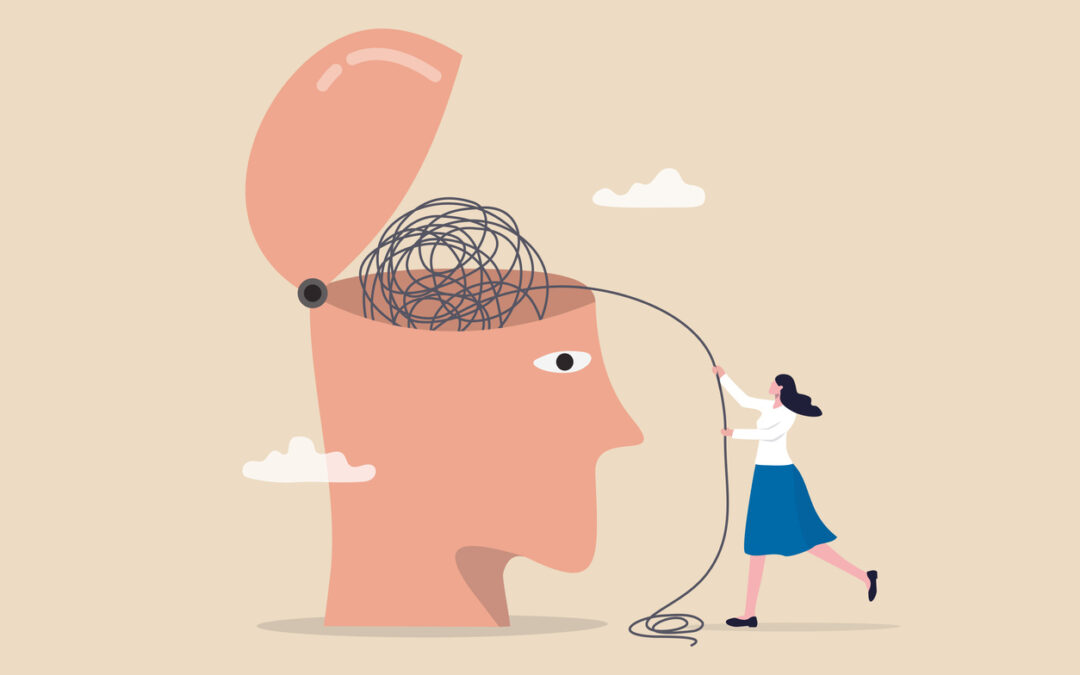In Europe, the week of 22-28 May is dedicated to raising awareness about the importance of mental health. In this blog, we want to highlight how some of the main problems in today’s financial and money system also represent a threat to our mental health. This shows a need to rethink and rebuild the economy so that it works for people’s well-being and not against it.
Does money make us happy? This is a question that has been nagging at us for centuries, to which there are probably no ‘black or white’ answers, but many nuances. However, the fact that societies with greater income differences register more cases of mental health issues, and that their citizens have a worse quality of social life, is backed up by studies and research. Epidemiologists Kate Pickett and Richard Wilkinson have written two books — The Spirit Level in 2009, and The Inner Level in 2018 — precisely on the connections between a country’s level of income inequality and its people’s happiness and health, both physical and psychological.
Societies with higher income inequality present more mental health issues
The World Health Organisation records that in 2021, more than 150 million people in Europe were living with a mental health condition, with too few of those suffering from depression getting the support they needed. With traumatic events such as the Covid-19 pandemic, the outbreak of the war in Ukraine, the worsening climate crisis and the cost-of-living crisis, the picture in 2023, sadly, cannot be much different.
The reasons behind mental health issues can, of course, be diverse; however, the importance of socio-economic factors such as economic inequality are gradually being recognised. In the two books mentioned above, Pickett and Wilkinson reveal the public costs of inequality: unequal societies suffer not only from more “social ills” such as crime and violence, but also from more mental health problems among individuals — from chronic stress, anxiety and depression, to bipolar disorder and addiction.
Why does inequality make us more stressed or anxious? The reason is that in a society with higher income inequality, we are more prone to judge others — and ourselves — based on economic status. In other words, people in unequal societies worry more about how others see them, or judge their “worth” based on how much they earn. This makes social relationships and interactions more stressful.
Our financial and money system is fuelling inequality
In short, Pickett and Wilkinson conclude that more equal societies function better than unequal ones in basically every respect, including in terms of people’s happiness and health.
The problem is that the system we live in is currently fuelling income inequality, instead of combatting it.
Let’s consider, for example, the current policies of the European Central Bank (ECB), namely one of the most important financial institutions in our economy. In the last year, the ECB has been increasing interest rates in an attempt to tackle rising inflation. One of the problematic aspects of this policy tool is that its aim is to throw more and more people into unemployment. It especially slashes the wage incomes of those who already don’t earn much — that’s because low-paid workers are often the first to get fired. The distributional effects of central bank policies are therefore not to be underestimated, especially since they can have long-lasting effects, particularly on the most vulnerable people.
The environmental crisis is also posing a risk to our mental health
Climate change, and the environmental crisis more generally, are among the most pressing emergencies we are facing: as such, the impact they may have on our mental health should be a factor of great attention among decision-makers, but this is not yet the case.
A paper by the Graham Institute shows that there is a connection between experiencing climate change–related events — for example, more frequent extreme weather events — and a worsening mental health condition.
With this data in mind, the fact that our financial and money system continues to pour funding into the sectors that are causing this climate and environmental crisis becomes an even greater risk.
Rethinking a healthy economy
Studies like those by Pickett and Wilkinson show that so far our economic system, and the models behind it, have somehow functioned to the detriment of people’s wellbeing, and even their health. So although we are not here to find a universal answer to the question of whether money makes for happiness, we do want to make one point clear, and that is that the way money is spent, allocated and distributed in our societies can have a major impact on the wellbeing of people and communities. If we are to overcome today’s main challenges — including those linked to mental health — we can no longer follow policies that amplify the underlying problems of those challenges, instead of working toward finding solutions.

